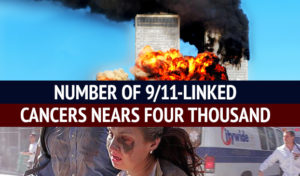New 9/11 Cancer Information Website provided by Zadroga Act Lawyers
Turley Redmond, & Rosasco is pleased to announce “9/11 Cancer Compensation Claims Info”, a new online informational resource for those who have been diagnosed with 9/11 related cancers. The website will provide the information needed to file a cancer claim with the 9/11 Victim Compensation Fund (VCF) and whether someone is eligible, according to Partner .
The site was previously called “Zadroga 9/11 Claims Info” and was originally launched in 2011 soon after the passage of the James Zadroga Health and Compensation Act of 2010. Initially, claims for 9/11 related cancers were not covered under the law. The site was renamed since the vast majority of new claims are being filed by those diagnosed with a 9/11-related cancer.
The 9/11 Cancer Compensation Claims Info website has a special FAQ’s (Frequently Asked Questions) section dedicated solely to addressing cancer claims from police officers, firefighters, first responders, volunteers and others who were sickened by the airborne toxins from Ground Zero. The section explains to the site’s visitors which 9/11-related cancers are eligible for treatment and compensation, where they can receive medical care, how much money they can expect to receive from the VCF, and whether they are eligible for funds from the VCF.
The site also explains the most common types of 9/11 cancer, the type of medical care offered through the World Trade Center Health Program, claims procedures and filing deadlines. In addition, the site is updated regularly with news, information and analysis on the current fight in Congress to extend the James Zadroga 9/11 Health and Compensation Act.
On October 12, 2012, the WTC Health Program added certain cancers to the List of WTC-Related Health Conditions. The list was updated on October 21, 2013 with the addition of Prostate Cancer. On February 18, 2014 the definition of Rare Cancers was revised and examples of certain Rare Cancers meeting the definition were added. See the current list of covered 9/11 related cancers here.
However, a cancer on the list of WTC-related health conditions does not necessarily mean that a cancer in an individual WTC responder or survivor will be determined to be WTC-related. Each WTC responder and survivor enrolled in the Program will go through a physician’s determination and “Program certification” process to assess whether their individual cancer meets the statutory definition of a WTC-related health condition.
The 9/11 Victim Compensation Fund (VCF), which is a separate agency from the World Trade Center Heath Program, determines financial awards for claimants with 9/11 cancers. The VCF will accept cancers that are certified for treatment by the WTC Health Program. Individuals who have been diagnosed with one of the specified cancers are eligible for compensation from the VCF provided the cancer is certified for treatment by the WTC Health Program and provided the claimant meets the VCF’s other eligibility criteria. You do not have to participate in the WTC Health Program in order to submit your claim to the VCF.
If you are being treated by another program or by another physician for a covered cancer, the VCF will provide you with specific forms and instructions to use to obtain information from that physician and will then seek guidance from the WTC Health Program as to whether your condition meets the standards adopted for certification.
“Unfortunately, 9/11 first responders, workers, volunteers and downtown residents are calling our office every day after being diagnosed with a 9/11-related cancer,” Partner Daniel Hansen said. “With the recent expiration of the Zadroga Act — putting in jeopardy future health benefits (with funding running out by early next year) — these claimants need more information and guidance than ever. We hope this new informational website can give them a starting point to find answers to their questions.”


